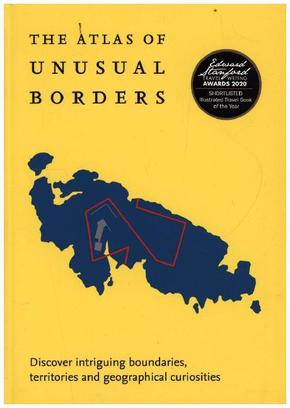
The Atlas of Unusual Borders - Discover intriguing boundaries, territories and geographical curiosities
| Verlag | HarperCollins UK |
| Auflage | 2019 |
| Seiten | 240 |
| Format | 14,8 x 21,0 x 2,4 cm |
| Flexibound | |
| Gewicht | 610 g |
| Artikeltyp | Englisches Buch |
| ISBN-10 | 0008351775 |
| EAN | 9780008351779 |
| Bestell-Nr | 00835177EA |
This beautifully designed book presents unusual borders, enclaves and exclaves, divided or non-existent cities and islands.
This beautifully designed book presents unusual borders, enclaves and exclaves, divided or non-existent cities and islands.
Numerous conflicts have left countries divided and often shattered. Remnants of countries can by design or accident be left behind as a legal anomaly in this complex world.
Most people believe that a country's borders are clearly defined: just lines that separate countries. Everything on one side of the line belongs to one country and everything on the other side belongs to another country. This might be the case most of the time, but there are unusual exceptions to this unwritten rule.
Examples include:
- Campione d'Italia where Italian residents have to travel 15km through Switzerland to reach the nearest available Italian territory
- Tomb of Suleyman Shah which is a tiny Turkish enclave within Syria which was moved closer to Turkey when Lake Assad was created but still stayed in Syria
- Pheasa nt Island which for half a year belongs to the Spanish city of Irun, and the remaining half, to its French twin-town, Hendaye
- Canadian Stanstead and American Beebe Plain where the boundary line runs along the centre of the main street, so that the houses on one side of the street are in Canada and on the other in the United States
These and many more instances are captured in this fascinating book full of strange geographical intrigue.
International Cartographic conference 2021 overall winner of the atlas category and shortlisted for the 2020 Edward Stanford Travel Writing.
Rezension:
"offering something new through its focus on borders and all their idiosyncrasies" Geographical
